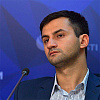Political Crisis in Iraq and Region after IS. Interview with former Iraqi Prime Minister Ayad Allawi
In
Login if you are already registered
(no votes) |
(0 votes) |
Ph.D. in History, Scientific Advisor of The Evgeny Primakov Center for International Cooperation, Senior Research Fellow, Center for the Arab and Islamic Studies, Institute of Oriental Studies RAS
On October 23, 2016 Al-Sumaria TV channel (considered to be an independent media resource headquartered in Beirut) broadcast a live interview with former Iraqi Prime Minister and Vice President Ayad Allawi in its Special Conversation programme.
At the start of the interview Ayad Allawi paid tribute to Al-Sumaria’s cameraman Ali Risan who was killed by a sniper near Mosul. Journalists have become more active since the offensive on this IS-held city was announced. The offensive was broadcast live by several important channels. The social media – Twitter, Instagram, Facebook etc. make wide use of the hash tag “Free Mosul.” Al-Sumaria channel has a caption in the top left corner which says “For a united Iraq. Mosul liberates itself.”
Фото опубликовано Alsumaria السومرية (@alsumariatv)
It has to be recalled that Ayad Allawi lost his post of Vice President along with Osama Al-Nujaifi and Nouri Al-Maliki in August 2015 as a result of reforms conducted by Iraqi Prime minister Haider al-Abbadi. On October 10, 2016 the Supreme Court of Iraq аnnulled the decision as unconstitutional. When asked to comment, Ayad Allawi said that he perceives it as “defence of the constitution by the judiciary” but noted that he would not dare to return to his post. Haider Al-Abbadi, he said, is in a spot of trouble because “he needs personnel to implement reforms.” Apparently the decision to restore the posts of vice presidents was pushed through by the man who is still directly involved in the country’s political life and in some ways runs it from behind the scenes, namely Nuri Al-Maliki.
In his interview Ayad Allawi called on the country’s leaders to admit that Iraq is in a state of political crisis and criticized “the destruction of political institutions of the state.” Speaking about Mosul, the former prime minister singled out three problems: international confrontation, the interference of Turkey and Iran and internal strife in the city. When asked about the wretched state of relations between Ankara and Baghdad, Ayad Allawi declared that Baghdad should give the Turks guarantees that Iraqi territory would not be used by the Kurdish PKK to attack Turkey. It has to be noted that Prime Minister Haider Al-Abbadi earlier declined the proposal of Pentagon chief Ashton Carter who arrived in Baghdad on Saturday 22 October that Turkish forces take part in the operation to liberate Mosul.

Reuters
Ayad Allawi
Former prime minister and leader of the National Coalition Ayad Allawi also raised the question of calling a regional UN-sponsored conference after the liquidation of IS in order to achieve peace and stability in the Middle East. He said there was now a chance to rebuild the region and expressed confidence that Iraq should “lead the international alliance.” Iraq, Ayad Allawi said, should “form a committee that would bring together security forces within a single framework.” A proposal to hold a conference of Iraq’s neighbour states was earlier made by the speaker of the Iraqi parliament Salim al-Jabouri.
Still, the decision to launch an offensive on Mosul leaves a lot of strategic and tactical questions unanswered. There is still no clear picture of Iraq after IS, no reforms have been implemented, the socio-economic situation in government-controlled areas has not improved and there is a paralysis of decision-making. The government’s initiatives are blocked by parliament. The current political crisis and lack of progress in resolving it suggest a future negative scenario for Iraq. In launching an offensive on Mosul, the Iraqis left unresolved the issue of restoring the recaptured cities and strengthening local institutions. Iraqi security forces have failed to liberate Havija and a number of other communities where IS is still present. The border with Syria has not been sealed.
Despite all the media shuffle, Mosul has not been surrounded and fighting has not even approached the city. IS is still able to use loyal groups of the population in various parts of Iraq, as witnessed by the attack on Kirkuk oil-bearing site on Friday. On Saturday IS attacked Ar-Rutbah in Anbar Province (310 km from the provincial centre Ramadi) on the road to the Jordanian border. Reports say that all the attacks were beaten off with difficulty with the help of reinforcements. Thus, IS is still able to force the forces opposing it to scatter and send reinforcements in various directions. This causes the forces besieging Mosul to postpone the liberation of the city. Initially hopes were pinned on Americans and their Baghdad allies being able to bribe or otherwise win over the local tribes. It is now clear that this work has not been done or petered out at some point. If the Americans really need Mosul they are likely to get their own Aleppo with fortifications, tunnels and better trained and mobile militants within the city supported by part of the population. Of course the Americans and their coalition will eventually capture the city, but it will take time and claim resources because the root of the problems is not IS, terrorism and so on, but permanent marginalization of entire groups of the population and continued political crisis in Iraq and massive external pressure. So far neither the Americans, nor the Iraqis have come up with a clear strategy. The Iranians have a sort of plan, and if they push for its implementation, this would meet with opposition from other regional powers and the USA. Perhaps the proposal made by Ayad Allawi and Al-Jabouri to call a conference to try to reach some kind of an agreement is worth pondering.
(no votes) |
(0 votes) |




